golden rules and golden ages
can western civilization survive the loss of its christian underpinnings?
i have long subscribed to the sort of jungian/jospeh campbellian school of religion/myths as archetypes, as reflections of the human subconscious and our fundamental drives, needs, and natures erected, selected, and preserved by (and perhaps preserving of) humanity.
such stories are preserved to the extent that they serve this role well and help us understand what it is to be us, why are we here, what is a good life, how we are to consider and comport ourselves with regard to our own selves and our fellows, what happens when we die, and the other “big questions.”
pondering this instinct and inclination rapidly leads one to vonnegut style ideas about how useful religions could be based entirely upon lies and points to a form of “harmless (or even useful) lie” that his invented bokononist faith terms “foma.”
“live by the foma that make you brave and kind and healthy and happy”
serves as opening epigram to “cat’s cradle” and this idea sets up the dichotomy i’d like to draw here:
there are truths and there are truths.
one truth is factual. this is a thing. it happened. it exists. it involved real people and real things and they behaved in certain ways. this truth tends to underpin ideas like science and scientific method. let’s (arbitrarily) call this “the first truth.”
but there is another truth. this truth is a story. this truth is a meme, an avatar. it may not have happened. the people and things in it may not be real. but this truth can still be truth to the extent that it captures, encapsulates, and perhaps epitomizes some fundamental aspect of the human condition, the human experience, the human race. the facts of the story need not be true for the meaning of the story to be true. the verity that romeo and julliet never lived makes their tale of star crossed love no less relevant to humanity as an exemplar. (perhaps it becomes more so as only an allegory may) they do not need to have once drawn breath for their conjuring as avatars to touch your reality and bear upon your experience. this is the truth that underpins religion and art. let’s call this “the second truth.”
to claim that only one of these kinds of truth is true or even that they stand in opposition rather than function in conjunction seems to me the sign of a limited mind.
speaking as one whose deistic religious tenets sit somewhere around agnostic and who knows many other such people (this and atheism having been the primary fashionable modes of “the educated” in more or less all of my conscious life) i find it very interesting the extent to which many of us have been having a similar conversation over the last couple of years.
it goes a bit like this:
i have had very much the same experience.
humans have a slot in their brain that says "put something larger than me here." something is going to fill it.
generally, it has been a religion, often deistic, and this has been a basis for much of human society.
we can argue about why this is so (and personally i suspect it was an aspect of self-domestication in humans as we settled down for agriculture and began to select for traits consistent with authority based structures around property rights and large scale cooperative enterprise) but the fact that most humans crave this deeply to the point of need seems pretty unambiguous. it’s the ball our inner dog must chase. it’s why every communist/marxist movement demands to crush religion: they are fighting over this slot in the minds of the populace and do not want any competition.
the history of humanity can, in a sense, be seen as a contest between ideas and ideologies competing to inhabit this conceptual vacuum/base need and the forms of social and economic organization and structure the victorious memes enable and/or prevent.
what are the stories of your tribe?
do your foma make you brave and kind and healthy and happy?
obviously, these cannot be just any story. they must be “true” stories (in the second sense of true), stories that reflect our natures and teach useful lessons that lead to thriving.
you cannot force a story upon a people at whim: to do so risks being sub or inhuman or even monstrous. you become mao or stalin or torquemada, a despotic pharaoh or a predatory llama. you go “woke.” and your society pays the price and fails.
a story must find consonance with us, emerge from us, carry us forward to something better and useful. this is the inhabited human story that i have spoken about in the past.
in the end, there’s a grand cycle here as the “second truth” you adopt determines the “first truth” of societal denouement and destiny as the laws of human nature and economics play out, remorseless and inevitable. each collective mythos elicits and contrives sets of outcomes enabling and proscribing possible states of civilization which, in turn generate new stories in response. these cycles can be virtuous or vicious, paths to penury or plenty, roads to serfdom or self-rule: it is the nature of the story that determines this. (and it is the nature of stories to determine such things.)
there is no society without story.
society is, at its deepest and most important level, a collective dream.
it is literally and in the strictest sense a shared story.
and nothing useful can work without it.
however much you might wish to re-write it, reality in the “first truth” sense is never optional but “reality” in the “second truth” sense is inasmuch as we may select the stories that best serve us and eschew those that separate us from bravery and kindness, health and happiness.
this is why the pivot of a society lies everywhere and always in story selection.
this fact tends to gall the “realists” and the objectivists who seek by rules and technocracy to channel and demand and nudge to “proper behavior and outcomes,” but it remains bedrock truth nevertheless and to believe otherwise just seems like another sort of particularly damaging cult belief around “the perfectibility of humans” where objective reality is used to break and mold them into something new and purportedly “finer.”
there is perhaps no idea in all of human history with a greater litany of blood soaked failure.
enter christianity.
whether it was luck or intelligence or provenance or predestination, somehow in the west we happened to find a tenet around "do unto others as you would have them do unto you" emergent from judeo-christian tradition and (perhaps vitally) rarified by protestant reformation. it seems a prosaic and obvious thing, but as an idea it was astonishingly revolutionary and remains to this day vanishingly rare in most of the world. many languages do not even have words for the concept.
the “golden rule” brought a “golden age.”
the simple, foundational notion and societal bedrock of being able to trust strangers to keep their word and to treat you as they would have you in turn treat them enabled a modern collaborative world to evolve with trust based economies, working economic contracts, functioning rights of the individual, pursuit of science, a sound social contract, and the rest of the firmament upon which modernity emerged.
kind of a big deal.
the enlightenment and the industrial revolution were offshoots of christianity. it's why it happened in the west and nowhere else except as awkward imitation and why so much of the rest of the world remains unable to emulate these economic and social miracles and resorts to large scale family metaphors (kiretsu, chaebol, etc) to try to circumvent this lack of basic trust. (or simply cannot manage it at all)
no golden rule, no golden age.
i don’t make the rules.
reality remains non-optional.
and this is where the idea of believing in the basis of a religion or having a set of religious underpinnings to a social contract becomes an idea i’m not sure i really understood until i watched the last few years throw it into such stark relief.
i always saw the monotheistic ideas of "worship no god but god" as a power play meaning "me king. always be king. god say so." but i have come to realize that it likely had a more potent evolutionary reason to thrive and persist which is that insistence upon such monotheism stamps out cults and creates a monoculture around basic social ideas and that once you get the social ideas correct, you can really thrive.
you can have a social contract that works.
conversely, as soon as you lose the religious proscription, it's golden calves everywhere and pretty soon people are worshiping luddite wrecker doctrine and destroying the power grid or espousing malthusian death cults or neo-slavers like DEI who would sacrifice the rights of the individual upon the power they must grab to fabricate collective entitlements.
multi-cult-ism destroys the basic social fabric of moral consensus that allows an functioning social contract to exist. it outright constitutes the diametric antithesis of such contracts.
many kinds of diversity are good or useful, but diversity around ideas like "the rights of the individual" and "property rights and free commerce" are not and that is what all these cults attack. and this is why they take such exception to equality based precepts like “do unto others as you would have them do unto you.” it’s because they have no intention of returning the favors they extract from you.
it’s part of what makes the marxist and post modern neo-marxist cults of DEI and ESG so pernicious.
“the golden rule” is a path to the enlightenment. it leads one to negative rights of the individual.
i would like you to let me be me so long as i do not trespass upon you or take your things; therefore i will afford you the same liberty.
it’s a big idea, arguably one of the biggest, perhaps the single most foundational in the creation and cultivation of a thriving republic.
and this idea remains historically and geographically rare.
and this idea everywhere and always must propagate from the bottom up. it cannot work top down.
it cannot be codified or technocratically contrived and applied sufficiently to be followed well or cover every contingency. it must be believed. it must be ingrained. it must be the societal story for only such a shared story may generate a shared frame through which to order perception and self-governance. it must be the lens through which decisions are seen and weighed.
civilization requires this baseline agreement and willing participation. you cannot generate legalistic cases to serve as endless guardrails of rules upon rules upon rules.
in the end, it comes down to the people and their determination to adopt the ideas that make civilization civilized. it runs on goodwill, good faith, and a commitment to the ethos that underpins it. take this away or fracture and fragment it, and the whole of the society goes into decline. taken too far, it will collapse.
therefore, in this respect, it must be a mono-culture.
as soon as you place ideas like “i am entitled to require you to give me X” or “the state is needed to assure outcomes instead of opportunity” you’re outside the functional negative rights structures conducive to thriving. positive rights are not rights at all, they are entitlements and entitlements always and everywhere require the subjugation of someone and the abrogation of their agency.
you have turned the golden rule to iron fetters.
the US has become much less overtly religious over the last several generations. religion was taken out of public life, out of schools, out of work, often by direct and specific prohibition. and perhaps this was a chesterton sort of fence that was torn down without realizing what it had been holding back. effects like this were more pronounced more rapidly in places like europe, onetime cradle of the enlightenment, perhaps because the decline of religion in its one time protestant precincts was more pronounced than in the US.
i think the cold war was really the last thing holding it in check in the US and that having the communist enemy to unify against kept us free and prosperous. “we’re america and we stand for rights and freedom and the american way!” seemed a sufficient story to fill “the slot” and keep the cults at bay. and it was perhaps a good story, certainly a proud story, a story that made us brave and made us happy. but it was also a form of co-dependence. we were not defined by “us.” we were defined by “not them.”
once the USSR collapsed, we had no them to push against and so "hey, maybe marxist ideas are great!" thrived in a society that had lost too much of its judeo-christian immune system to resist it well, particularly in the uber-atheist academic environments. we were a tottering structure held up only by our opposition to a well selected “enemy” who might well have been acting as our greatest friend. but when it was pulled away, the structures fell, the slots were pried open, and the pandora’s box pestilence of cults and cultish behavior was unleashed upon the unsuspecting victors.
and so here we sit today.
and so i wonder:
is the republic, however imperfectly it has been attempted and instantiated, a form of government that may only in truth be practiced by the practitioners of the golden rule?
this seems likely to be so.
and if this is so, then how may we as a society organize ourselves around this idea and resist the cults that seek to be treated far better than they themselves have any intent of treating anyone else? because that seems a path to dissolute aristocracy by the worst and least moral among us.
might it be that only the basic christian values imbued and intrinsic to a people may allow the rights of the individual the stand paramount above leviathan and those who would yoke the state into the service of the abrogation of agency and meritocracy?
might we indeed have inadvertently (or perhaps with deliberation) undermined the foundations of freedom that come from the simple idea of a golden rule to keep the golden calves from running rabid?
for all that one or any might have taken offense to past incorporation of such religious tenets into the state, are we going to seriously argue that things have been going better since its removal?
because it seems to me there is much to pine for the reemergence of and that if we are to do so, then perhaps an alliance need be forged:
for those who styled themselves “intellectual” or “empiricist” perhaps there is a need to stop and assess that poo-pooing faith as fairy tale is a form of truth denial and ignorance for while even if one could prove the facts false and the saints to never have lived, there are other measures of truth that when left to go begging dissolve the substrate of society. avatars and archetypes emerge for a reason. the idea of faith is not foolish. it may indeed be a path to social salvation.
and for those who styled themselves christians, perhaps there is a need to reserve judgement and judginess and to remember that the golden rule applies to all in a sort of rawlsian fashion and that whomsoever consenting adults love or what they chose to do with their sundays is their own business and that peaceful people should afford one another wide latitude to be brave and kind and healthy and happy. it is no sin to lack faith or a belief in an almighty, only to seek dominion over one’s fellows.
this alliance was perhaps the essence of the enlightenment. newton, pascal, decartes, and even copernicus were devout. many of my friends are religious and many others are not, but i think a great group of us are realizing that despite that divergence we stand upon the same side of this issue at a time when such confluence seems most acutely needful. the soul of our nation and civilization has been laid siege and infiltrated by wreckers whose fugazy “diversity and equity” threatens the very basis for the ideas of the enlightenment and of a modern world consistent with prosperity and liberty and that if indeed we are to once again secure these blessings for ourselves and our posterity then it’s time to knock off the petty squabbling and take back the story of who we are and what we stand for.
you are not going to like the gluten free, cricket derived, zero carbon hairshirts of contrition that lie in store for you if we don’t…

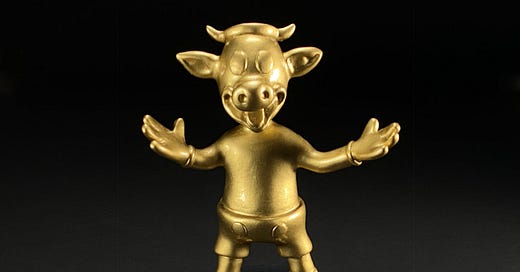



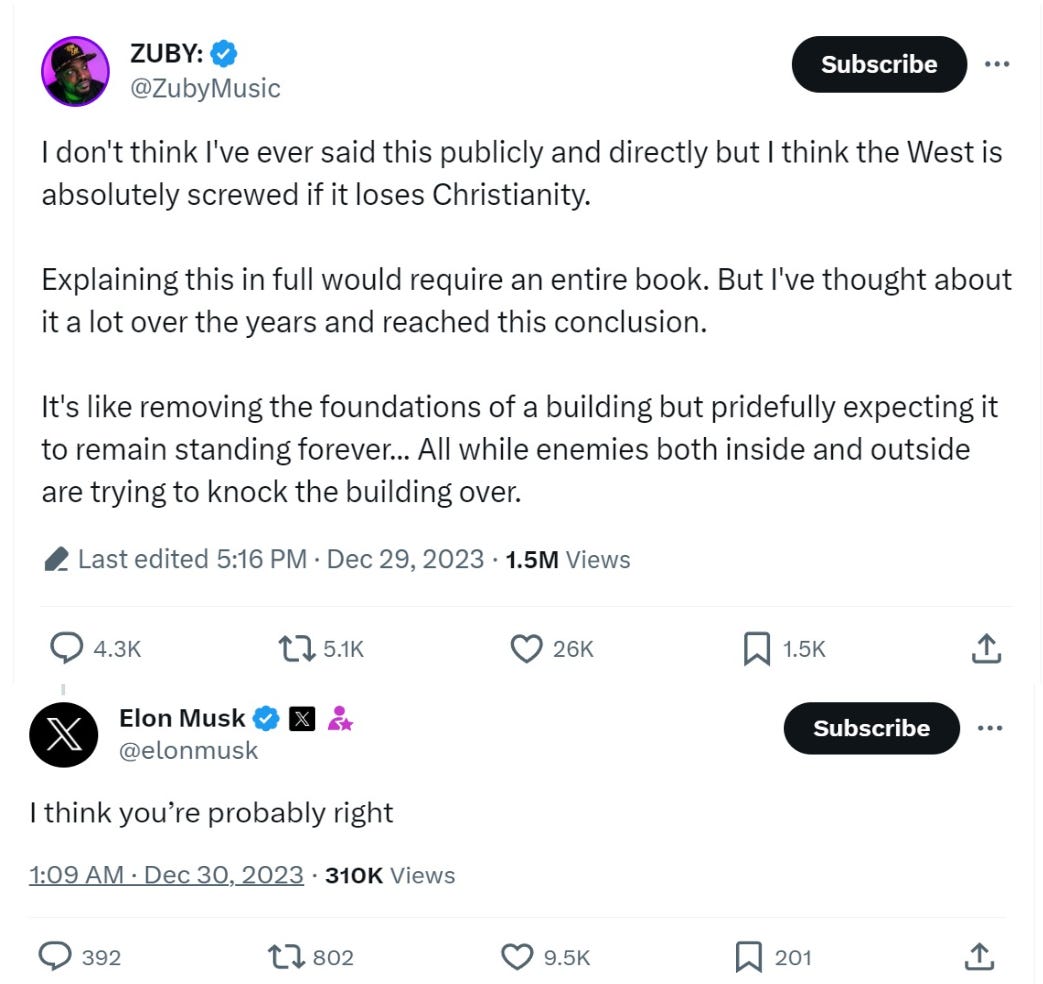
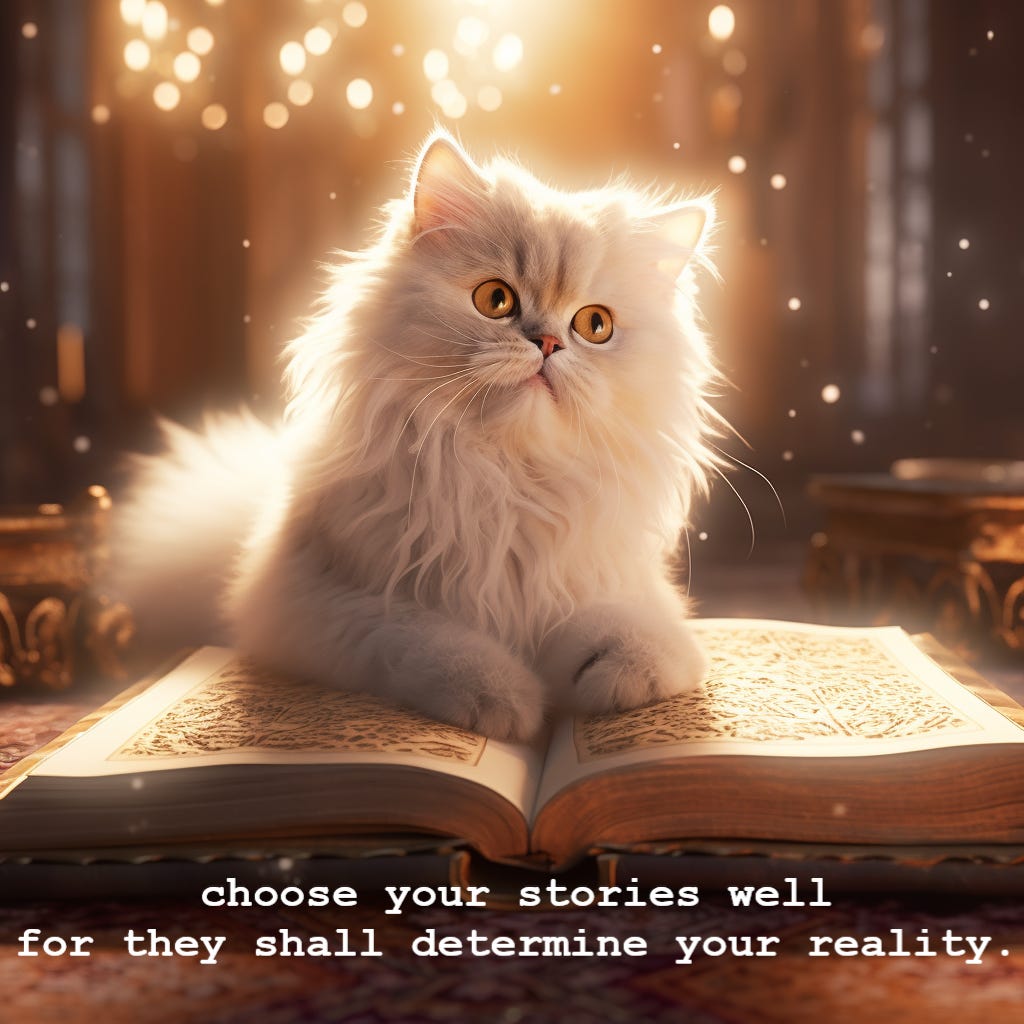
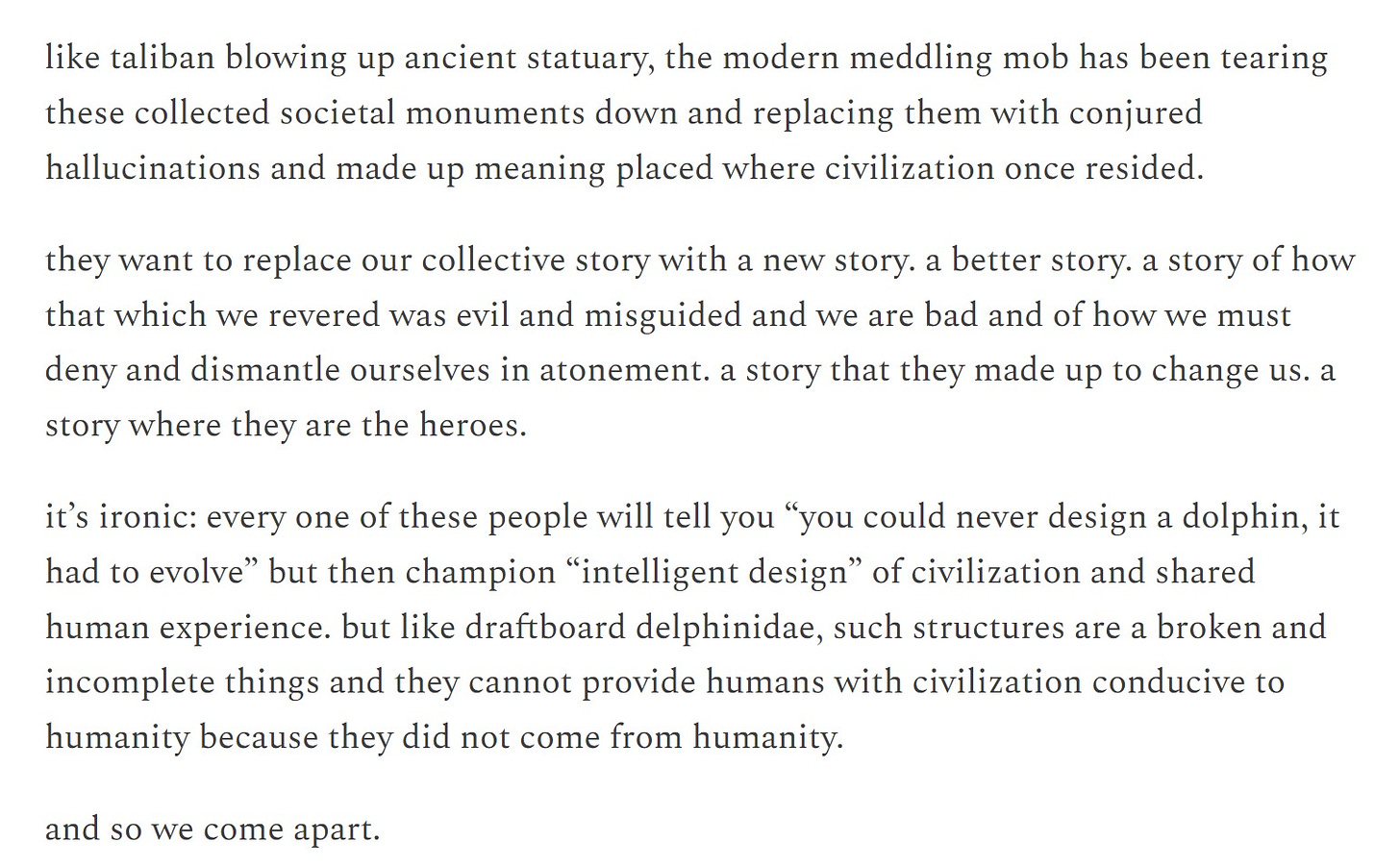


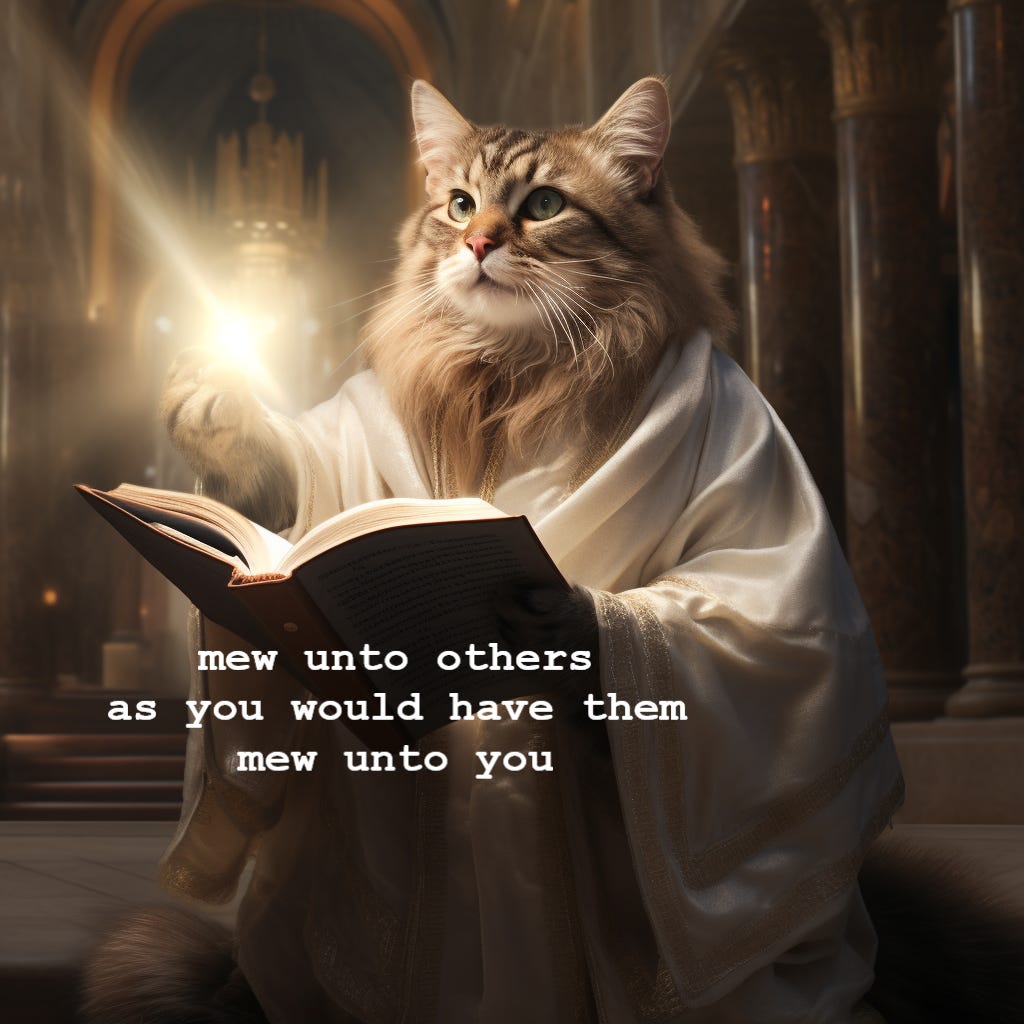

“ Now faith is the substance of things hoped for, the evidence of things not seen.” ~ Hebrews 11: 1
“ Our Constitution was made only for a moral and religious people. It is wholly inadequate to the government of any other.” ~ John Adams
One aspect of the post-60s 'revolution' that gets little attention is that it saw a retreat from the Christian conception of the individual as an intrinsically flawed being – prone to sin and prone to error. Now maximal 'self esteem' is valorised. People drunk on their own self esteem will have inflated expectations that they deserve never to be made 'unhappy' by anything so annoying as 'reality'.